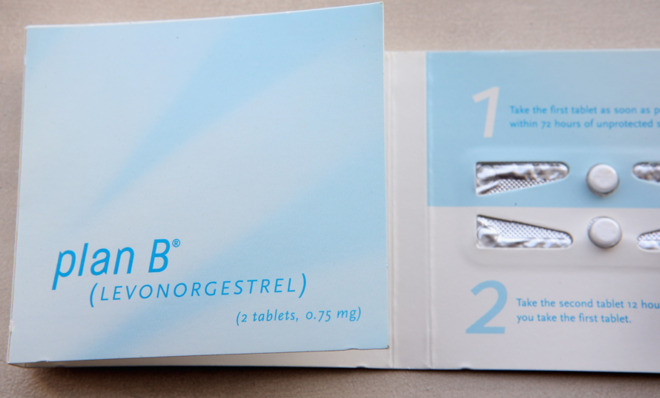Why American women should worry about Plan B
The popular emergency contraceptive may have a weight limit


A free daily email with the biggest news stories of the day – and the best features from TheWeek.com
You are now subscribed
Your newsletter sign-up was successful
American women may have a new reason to watch their weight: Emergency contraceptive pills, such as Plan B One-Step, may lose their effectiveness for heavier women.
Norlevo, a European drug with "identical" ingredients to Plan B One-Step, is completely ineffective for women who weigh more than 176 pounds, and could begin losing effectiveness for those weighing more than 165 pounds. HRA Pharma, the manufacturer of Norlevo, is changing the drug's packaging to reflect the new weight limits.
While the manufacturers of emergency contraceptive pills sold in the United States have yet to release similar findings, the data presents immediate concern for American women. Twenty-three percent of American women aged 20 to 44 are obese, and 24.5 percent are overweight. According to Mother Jones, the average American women weighs 166 pounds, which may make the pills useless to them.
The Week
Escape your echo chamber. Get the facts behind the news, plus analysis from multiple perspectives.

Sign up for The Week's Free Newsletters
From our morning news briefing to a weekly Good News Newsletter, get the best of The Week delivered directly to your inbox.
From our morning news briefing to a weekly Good News Newsletter, get the best of The Week delivered directly to your inbox.
The American version of Plan B contains synthetic hormones similar to the formula used in Norlevo, so American women have a right to be concerned. American contraceptive manufacturers don't currently mention weight limits, but given the drugs' similarities, that may soon change.
"There's no evidence that similar warnings will be popping up here, but our version is formulated with similar levels of the same kind of synthetic hormones as Norlevo, meaning there's every reason to believe that women who weigh more than 165 pounds in the U.S. are just as prone to see a decrease in the pill's effectiveness," writes Amanda Marcotte at Slate.
Teva Pharmaceutical Industries, the manufacturer of the popular Plan B One-Step, has not released a change in product information, preventing generic emergency contraceptives from doing so as well, under FDA regulations.
The implications for American women could potentially extend to certain brands of regular birth control pills as well, since many use similar hormonal formulas. According to Karina Gajek, the spokeswoman for HRA Pharma, the solution may not be as simple as prescribing higher hormonal doses for women who weigh more than 165 pounds. Gajek suggests that women who weigh more than 165 pounds discuss other emergency contraceptive options, such as IUDs, with their doctors.
A free daily email with the biggest news stories of the day – and the best features from TheWeek.com
IUDs may not be a viable option for many American women, though. Plan B One-Step is available over-the-counter and without age restrictions, while IUD insertion requires a doctor. There is also the matter of cost: While Plan B One-Step goes for roughly $50, IUDs can run anywhere from $500 to $900.
Meghan DeMaria is a staff writer at TheWeek.com. She has previously worked for USA Today and Marie Claire.
-
 Film reviews: ‘Send Help’ and ‘Private Life’
Film reviews: ‘Send Help’ and ‘Private Life’Feature An office doormat is stranded alone with her awful boss and a frazzled therapist turns amateur murder investigator
-
 Movies to watch in February
Movies to watch in Februarythe week recommends Time travelers, multiverse hoppers and an Iraqi parable highlight this month’s offerings during the deep of winter
-
 ICE’s facial scanning is the tip of the surveillance iceberg
ICE’s facial scanning is the tip of the surveillance icebergIN THE SPOTLIGHT Federal troops are increasingly turning to high-tech tracking tools that push the boundaries of personal privacy
